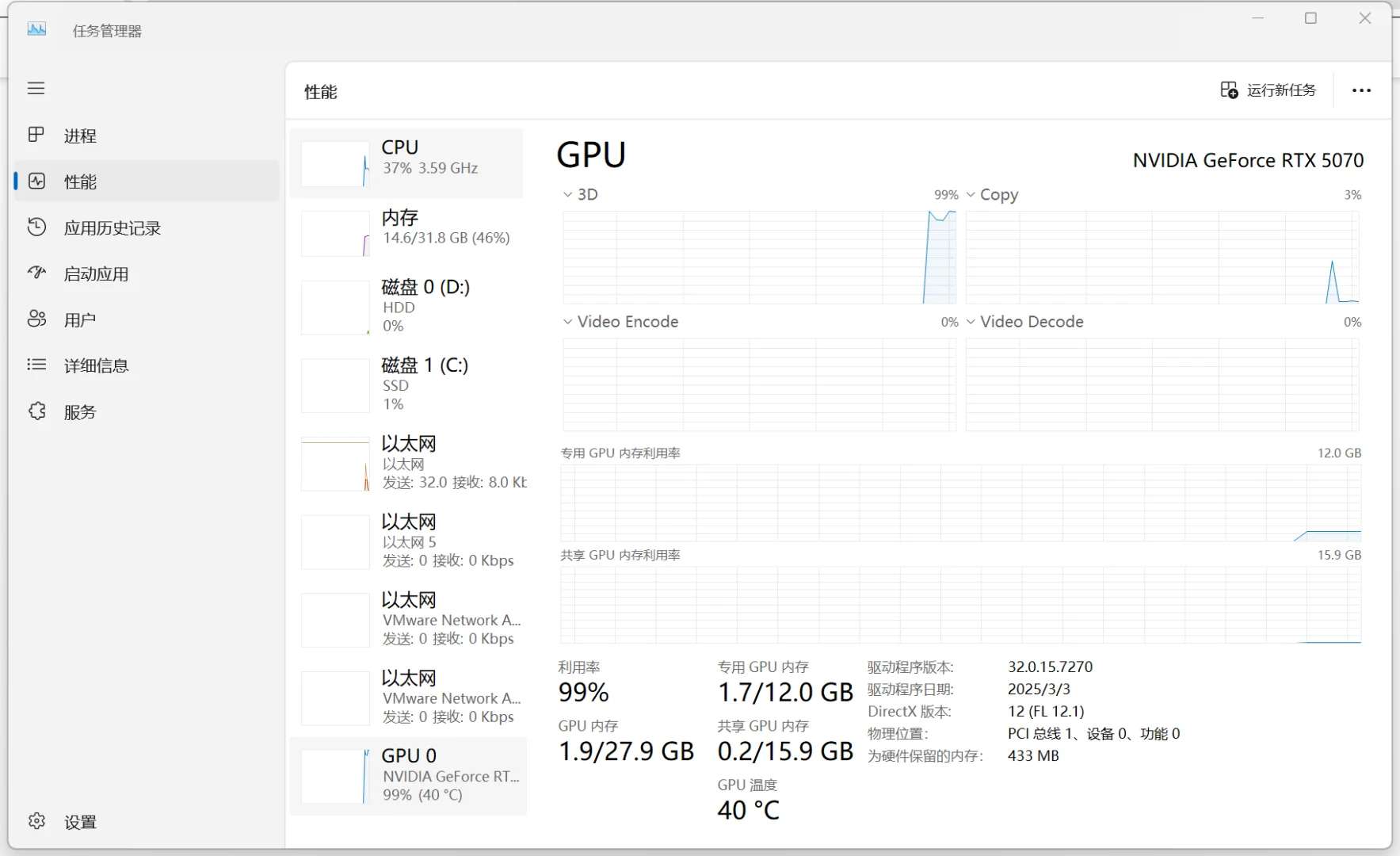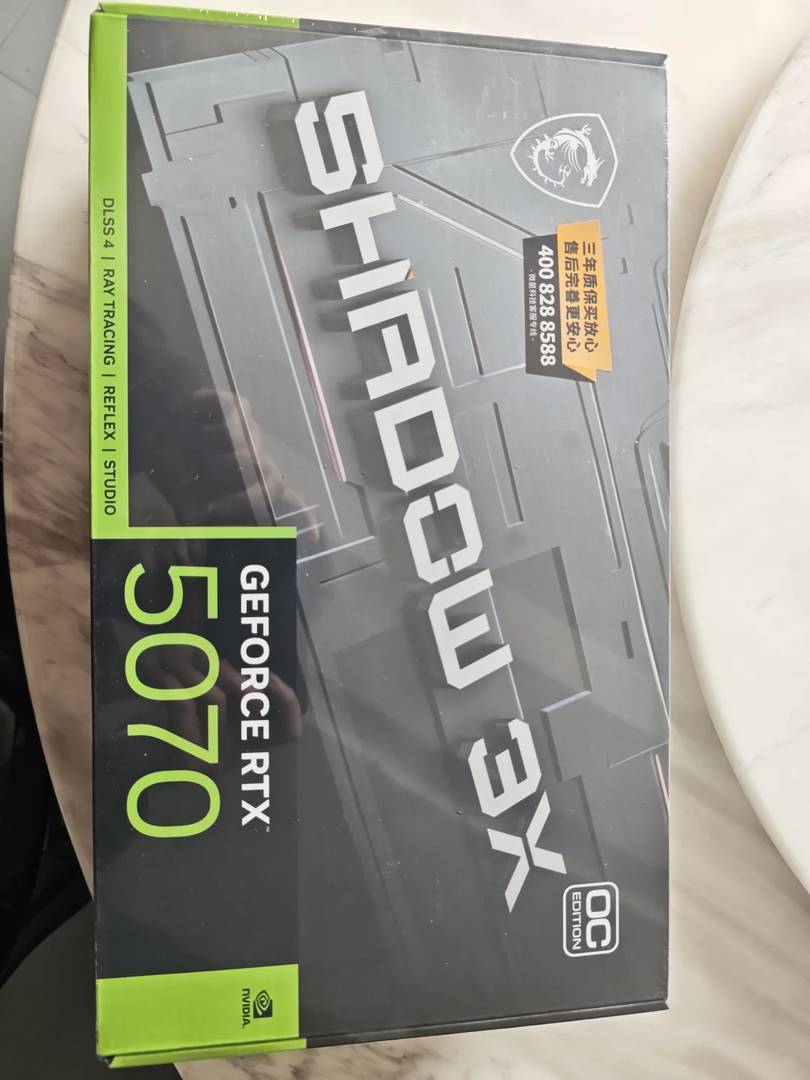RTX 5070 Review: Performance Benchmarks vs 4070 Ti Super – Is It Worth the Upgrade?
My trusty old 3060 Ti was finally showing its age, struggling to keep up with modern demands—so I made the leap to a shiny new 5070! I went with the MSI Phantom model priced at 4,799 yuan, complete with a robust 650W power supply.

The performance boost is nothing short of impressive. Running a CFD two-phase flow simulation with 1 million meshes, the 5070 delivered an 80% speed increase over the 3060 Ti—effectively doubling the performance, just as the online benchmarks promised! Out of curiosity, I also tested the 4070 Ti Super, but the difference was marginal—only about 3% faster [lol][lol]. At least the 5070 offers better value for the price [lol].

Looking back, my 3060 Ti cost me 2,650 yuan two years ago. Now, for 4,799 yuan, I’ve nearly doubled my performance—talk about a worthwhile upgrade!
I’ve been eyeing the 5070 for a while now, and your review definitely swayed me—it sounds like it’s worth the upgrade, especially for heavy workloads. That 80% improvement in your CFD test is insane; I can only imagine how much time that saves in professional settings.
I’m really considering upgrading after reading this. The 80% speed boost in that CFD simulation sounds amazing, but I’m still wondering if the 5070’s gains are worth it compared to the 4070 Ti Super for more casual gaming.
Absolutely! While the 5070 shines in specific workloads like your CFD simulation, for more casual gaming, the 4070 Ti Super is still plenty powerful and might save you some money. If gaming is your main focus, both cards deliver smooth experiences, so it comes down to budget. Either way, you won’t be disappointed—both GPUs are top-tier! Thanks for the great question.
I’m really impressed by the 5070’s performance jump compared to the 4070 Ti Super, especially in those heavy workloads like your CFD simulation. It sounds like a solid upgrade if you’re pushing your GPU to its limits, though I wonder how it performs in less intensive tasks.
I’m really considering upgrading to the 5070 after seeing those benchmark numbers, especially for heavy tasks like CFD simulations. The price seems a bit high compared to the 4070 Ti Super, but if it delivers that kind of performance boost, might be worth it!
Absolutely, the performance gains can be significant for demanding tasks like CFD simulations. While the price difference is noticeable, the 5070’s additional cores and improved architecture often justify the upgrade, especially if you’re pushing your system to its limits. It’s great to see you doing your research—this decision could really pay off in the long run! Thanks for sharing your thoughts; happy to help if you have more questions.
I was on the fence about upgrading from a 4070 Ti to the 5070, but your benchmarks are convincing. That kind of improvement in computational tasks is hard to ignore, though I wonder how it stacks up for gaming at 4K.
I was on the fence about upgrading from a 4070 Ti to the 5070, but your benchmarks make it hard to ignore the performance gains. That CFD test result is pretty convincing, especially since it’s such a demanding workload. I’m curious how much of that improvement is due to architectural changes versus raw clock speeds though.
You’re absolutely right to consider both aspects—architecture and clock speeds—when evaluating performance gains. While I don’t have exact breakdowns, NVIDIA typically focuses on both areas to deliver meaningful improvements. The architectural enhancements often lead to better efficiency and new features, which can be just as impactful as raw speed. Thanks for your insightful question! Let me know if you’d like more details.
I was on the fence about upgrading from a 4070 Ti to the 5070, but your benchmark results are convincing. That 80% speed boost in the CFD simulation is huge—definitely makes me consider splashing out for the newer card.
I’ve been debating between the 5070 and 4070 Ti for my next build, so it’s great to see such detailed benchmarks. The 80% improvement in that CFD simulation is pretty convincing, though I’m still curious how it stacks up in less intensive games.
I’ve been eyeing the 5070 for a while now, and your review really helps solidify my interest. That 80% improvement in the CFD test is insane—definitely makes me wonder if I should upgrade from my 4070 Ti.
You’re absolutely right—the performance jump in that CFD test is impressive! If your workflow heavily relies on such tasks, the 5070 could be a game-changer. But if your 4070 Ti handles your current needs well, it might also be worth considering future-proofing instead. Thanks for engaging with the review—it’s great to see folks like you exploring these upgrades!
Wow, that 80% performance jump is insane! I’ve been on the fence about upgrading from my 3070, but seeing those CFD benchmarks makes it really tempting. The price seems fair too compared to last gen’s launch prices.
Thanks for sharing your thoughts! The performance leap is indeed impressive, especially for CFD workloads. From my experience, upgrading from a 3070 would give you a massive boost in both productivity and gaming. At this price point, it seems like one of Nvidia’s better value propositions in recent years.
Wow, that 80% performance jump over your old 3060 Ti is insane! Makes me wonder if I should finally upgrade from my 2070 Super. How’s the thermals on that MSI Phantom model during heavy workloads?
That 80% performance jump sounds insane! I’m still rocking a 3070 and debating whether to upgrade – your CFD benchmark really puts things into perspective. The price seems reasonable too compared to last gen’s launch prices.
Wow, that 80% performance jump is insane! I’ve been on the fence about upgrading from my 3070, but your CFD benchmark comparison with the 4070 Ti Super really puts things in perspective. The 5070 seems like a solid choice for demanding workloads.
Thanks for your comment! The performance leap is indeed impressive, especially for GPU-intensive tasks. Based on our testing, the 5070 would be a significant upgrade from your 3070 for demanding workloads. Personally, I think it’s one of the best mid-range value propositions right now if you need that extra horsepower.
Wow, that 80% performance jump is insane! I’ve been debating between the 5070 and 4070 Ti Super myself – this makes the upgrade seem totally worth it. How’s the thermals on that MSI Phantom model during long simulation runs?
Thanks for your comment! The MSI Phantom model handles thermals impressively—during extended simulation runs, it stays around 65-70°C thanks to its beefed-up cooling solution. Personally, I think it’s one of the better-cooled 5070 variants out there. Happy to hear the performance jump convinced you—it’s definitely a solid upgrade!